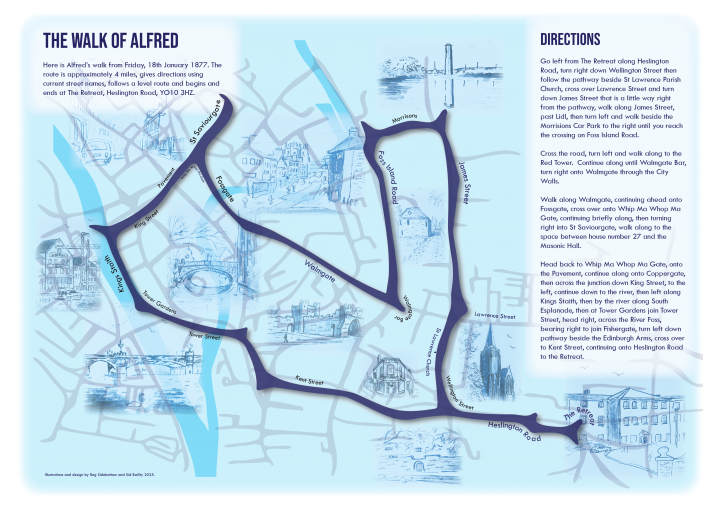In 1877 Alfred Smith, aged 59, writes a diary from his home ‘The Retreat’, a ‘private lunatic asylum’ in York, UK. Alfred’s diary is interesting in many ways, and significant as a historical account of disability, mental health and life in York.
The Retreat is also significant in the history of Mental Health. Founded by William Tuke in 1796 in reaction to the neglectful death of Hannah Mills, a fellow quaker, whilst in Bootham Asylum in York. William Tuke’s son, Henry Tuke, and his son Samuel Tuke continued the work.
The Retreat proposed a different, more humane, family approach. Described as ‘moral treatment’, much is written about how this changed mental health care in the 1800’s. However, less is heard about the lives of people that lived there.
Alfred’s diary gives a good account of life at The Retreat. It includes many things, including a large number of walking routes that he took around the streets and pathways of York.
These all begin ‘…took a walk…’ and then detail, the specific street names and pathways of the routes he follows.
Below is a retracing of Alfred Smith’s diary entry from 18th January 1877 where he recounts, his initial journey from London to The Retreat, the conduct of staff, his working contribution and a reflective walk to look at the house that his mother lived and worked as a cook for the Tuke family. Illustrations by Reg Sidebottom.
Click here for a pdf of ‘The Walk of Alfred’.
Or listen here to an audio version.
Alfred’s diary is available at Borthwick Institute for Archives, and online at the Welcome Collection.
The ’Walk of Alfred’ was created as part of ‘Stories of Mental Health from York: Past, Present, and Future’, funded by ‘Mentally Fit York’ at the Borthwick Institute for Archives 2025.
Here’s also a video walkthrough retracing the walk as it would be today.
